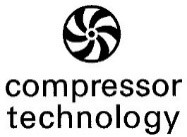The technical or usual vocabulary cannot be monopolized and must remain at the disposal of each and all economic actors. The rule is simple, but its standards for application are not.
Indeed, many descriptive trademarks have been registered and are currently in force. Are they obstacles to the registration or use of other marks containing such terms?
Yes, as long as they remain on the trademark registers…
And no, if a declaration of invalidity is requested before the competent court!
This was confirmed by the Court of Justice of the European Union in a dispute between the earlier trade mark KOMPRESSOR registered by several national trademark offices (including INPI in France) to designate various electrical devices which may include a compressor (vacuum cleaners, air conditioners and refrigerators), and the EU trademark application COMPRESSOR TECHNOLOGY  (CJEU, 8 November 2016, C-43/15P, BSH Bosch and Siemens Hausgeräte v/ EUIPO – LG Electronics).
(CJEU, 8 November 2016, C-43/15P, BSH Bosch and Siemens Hausgeräte v/ EUIPO – LG Electronics).
The Court ruled that it is not within the context of the opposition that the descriptive or non-descriptive nature of a mark in relation to the goods and services concerned can be examined, but during the examination procedure by the trademark office.
A national mark is always assumed to be valid and to have a certain degree of distinctiveness: “(…) in opposition proceedings directed against the registration of an EU trade mark the validity of national trade marks may not be called into question. Therefore, in such opposition proceedings, it is likewise not possible to find, with regard to a sign identical to a trade mark protected in a Member State, an absolute ground for refusal, such as descriptive character and the lack of distinctive character” (paragraph 66).
“Therefore, assuming that an earlier national mark is in fact descriptive in respect of some of the goods for which it has been registered and that its protection leads to improper monopolization of the descriptive indication in question, such a consequence must be remedied (…) by invalidity proceedings brought in the Member State concerned” (paragraph 68).
Our recommendations
It is up to the economic actors to defend their interests whenever there is an opportunity.
In this regard, they can monitor the trademark registers to detect trademark applications composed of keyword or generic keywords in their activities and file absolute grounds observations at the examination stage in order to avoid the registration of descriptive marks which could prevent to use them freely.
Prior to any use of a sign as a trademark, availability searches must be carried out systematically by a trademark attorney, capable of correctly assessing the risk of confusion with existing trademarks and the associated costs.
Depending on the results, an adapted strategy can be developed:
- Offensive approach, in order to ensure legal certainty over time: invalidity proceedings may be brought against the earlier descriptive mark; however, court procedures remain lengthy and costly processes. Things could change when the procedure for revocation or declaration of invalidity of French trademarks will become available before the trademark office (See our article here), but this implementation will not be effective before several years;
- Bold approach: finding a loophole, and not systematically seek to register the sign as used, by playing with the descriptiveness of certain elements of the mark. This strategy should be developed on a case-by-case basis, taking into account the obligation to use the trademark without altering its distinctive nature.
In any case, the economic players must be made aware of the risks inherent in their communication and anticipate possible problems to better control their budget and the legal risk. [INSCRIPTA], as an expert in trademark law, provides you with customized, practical and convenient solutions in this very technical environment.
© [INSCRIPTA]

